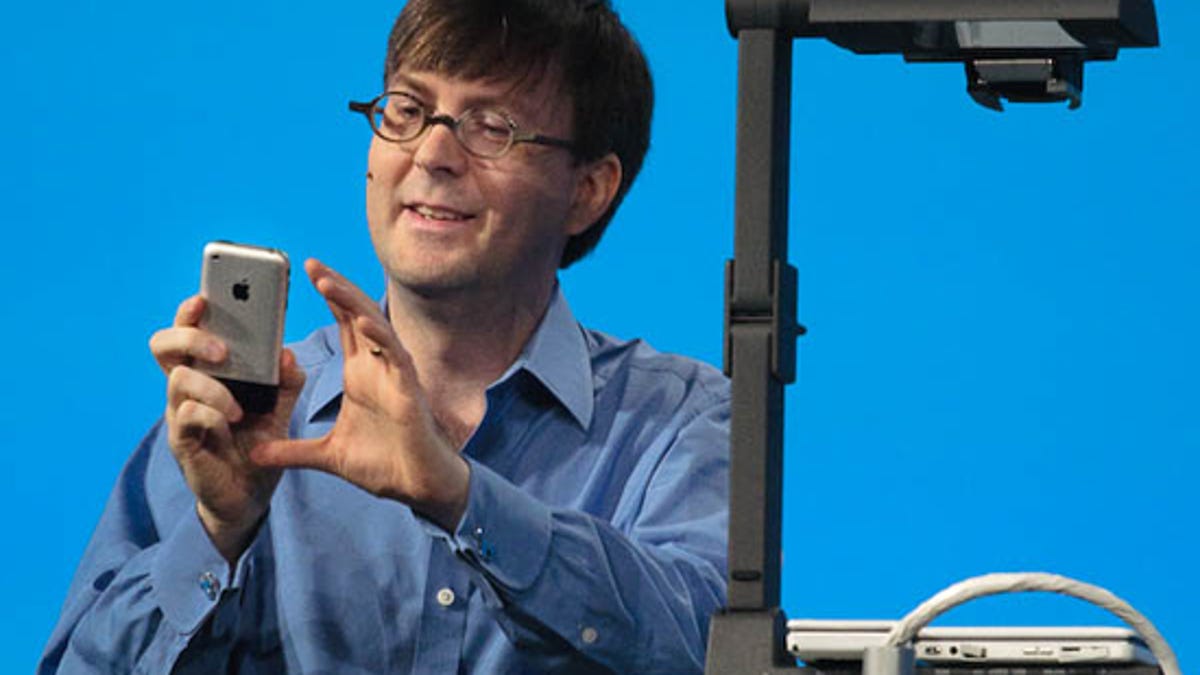Adobe CTO Kevin Lynch resigns, headed for Apple
Adobe's CTO Kevin Lynch has resigned, departing the company to go work at Apple as the VP of technology.

Adobe Systems Chief Technology Officer Kevin Lynch announced plans today to leave the company and is headed for Apple to become its vice president of technologies.
Adobe says it's not replacing the CTO position, and instead is assigning those responsibilities to Adobe CEO Shantanu Narayen and SVP Bryan Lamkin.
News of the resignation came inside of a filing with the U.S. Securities and Exchange Commission, though not the move to Apple, which was reported earlier by CNBC.
From Adobe:
Kevin Lynch, Adobe CTO, is leaving the company effective March 22 to take a position at Apple We will not be replacing the CTO position; responsibility for technology development lies with our business unit heads under the leadership of Adobe CEO Shantanu Narayen. Bryan Lamkin, who has recently returned to Adobe, will assume responsibilities for cross company research and technology initiatives as well as Corporate Development. We wish Kevin well in this new chapter of his career.
Lynch and Apple did not respond to a request for a comment on the move.
Lynch will take on a role of vice president of technology reporting to Senior Vice President Bob Mansfield, CNBC says. Apple created that group as part of its shake up last October, which included the announced departure of iOS software chief Scott Forstall and retail chief John Browett. Apple is still on the hunt for Browett's replacement, and already combined some of Forstall's responsibilities among other top execs Craig Federighi, Jony Ive and Eddy Cue.
"I think Lynch is fascinated by the intersection of hardware and software, and Adobe doesn't have that," a person close to Adobe's board told CNET. "It's completely different than anything he's ever done."
"Lynch is more a software guy," adds Forrester VP and principal analyst Jeffrey Hammond. "I think it could be a signal Apple is interested in more than just the device - Adobe has done a good job transitioning its products to the cloud and putting in place the elements of a subscription model. Perhaps this gives Apple some experience that will help them compete with Google and Microsoft on a front they are not very good at right now."
Lynch has some roots in Mac software, including development of FrameMaker and its technology, which was acquired by Adobe. He also worked at General Magic, which was founded by some of the original Mac team including Bill Atkinson and Andy Hertzfeld. At the same time, Lynch was a staunch critic of Apple for not including Adobe's Flash technologyon the iPhone or iPad.
Apple and Adobe famously warred over the Flash issue in 2010, with then Apple CEO Steve Jobs penning a public memo called "Thoughts on Flash," which argued Adobe's technology was deeply flawed and vaunting more open technologies like HTML5. Adobe responded by running a massive ad campaign -- both online and in print -- touting its developer base and arguing that Apple was "taking away" people's "freedom to choose" how those experiences were created. A year later Adobe ceded, announcing plans to cease development on the mobile browser version of Flash, and focus its tools on HTML instead.
Lynch's departure comes just after a revenue and earnings beat by Adobe for its first quarter, as well as news that it had more than 500,000 paid members of its Creative Cloud service.
Adobe's stock was up $2.32 to 43.07 or 5.69 percent after hours. Apple's moved down 89 cents to $453.60 a share.
Updated at 3 p.m. PT with more information throughout.

